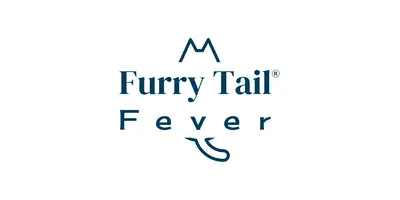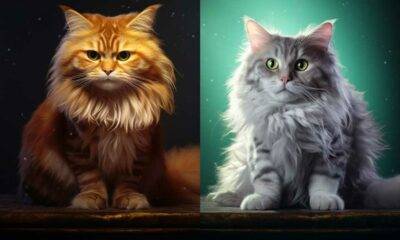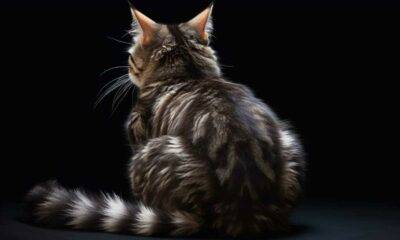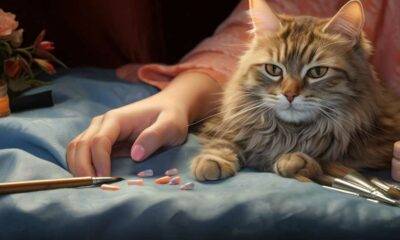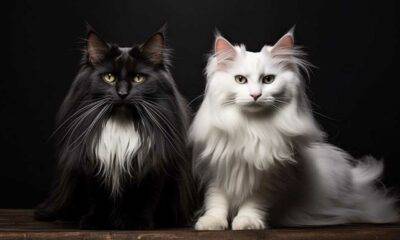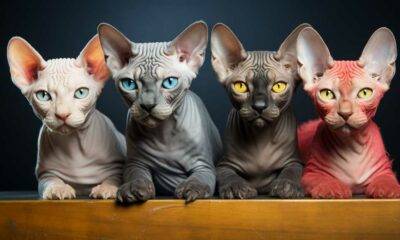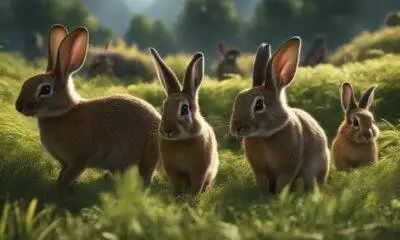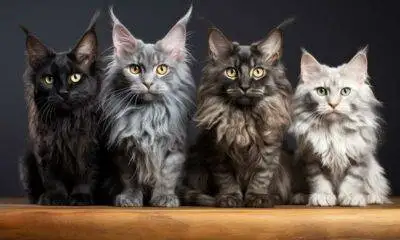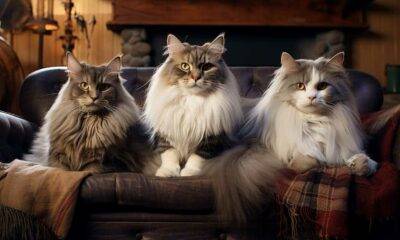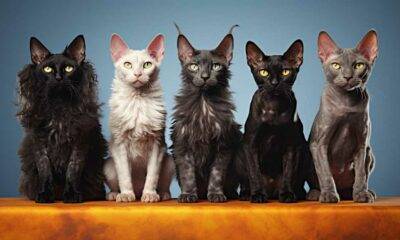cats
8 Best Indicators of Nutritional Deficits in Cats
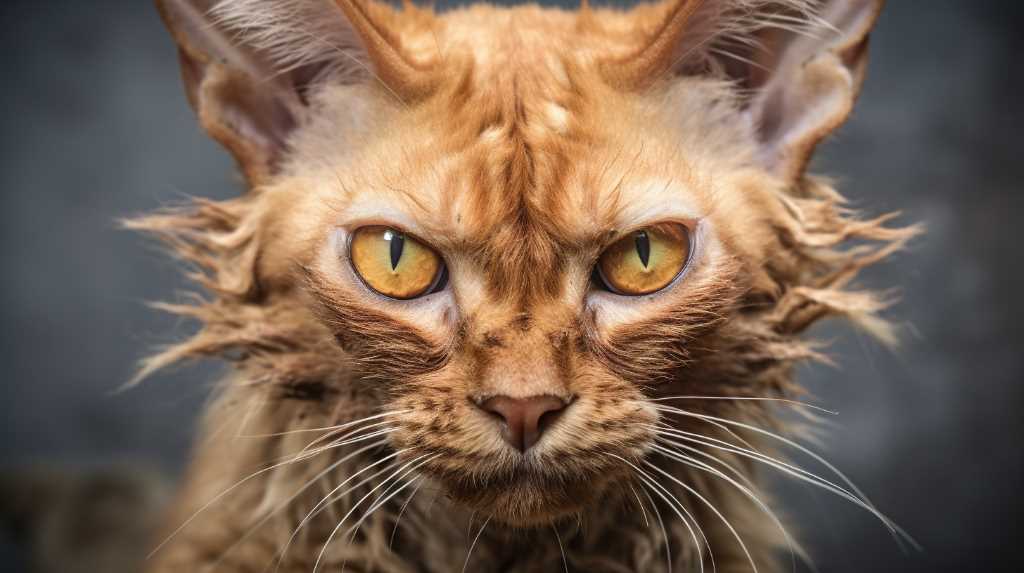
8 Best Indicators of Nutritional Deficits in Cats
Are you wondering how to tell if your cat is experiencing nutritional deficits? Keeping a close eye on your cat’s well-being and being aware of any changes in their appearance or behavior is crucial.
In this article, we will discuss the 8 best indicators that can help you identify if your cat is lacking essential nutrients.
By observing their coat condition, noting any weight loss, and paying attention to signs of lethargy or digestive irregularities, you can gain valuable insights into your cat’s nutritional health.
Prioritizing these indicators will ensure that your beloved pet receives the necessary nutrients for a happy and healthy life.
Key Takeaways
Recognizing the signs of nutritional deficits in cats is crucial for their overall well-being. These indicators, such as poor coat condition, digestive irregularities, weight loss, and behavioral shifts, provide valuable insights into their health.
By closely observing our feline friends and promptly addressing any concerns, we can ensure they receive the proper nutrition they need.
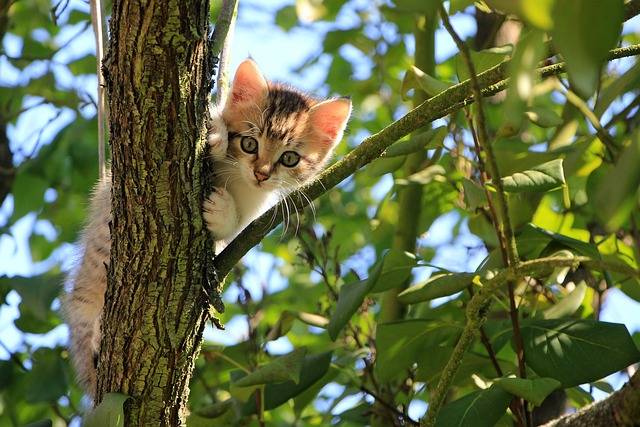
It’s important to keep in mind that a healthy cat is full of energy and life, like a vibrant work of art.
Recognizing Poor Coat Condition
Recognizing Poor Coat Condition
To identify signs of poor coat condition in your cat, simply observe their fur for any indicators of dullness, matting, or excessive shedding. A cat’s coat serves as a reflection of their overall health and can be influenced by factors such as dietary deficiencies and the importance of proper grooming.
When a cat lacks essential nutrients due to dietary deficiencies, their coat may appear dry and flaky, resulting in a lackluster appearance. One specific example of this is a deficiency in omega-3 fatty acids, which can lead to dry skin and a dull coat.
Additionally, regular grooming plays a crucial role in maintaining a healthy coat. By brushing your cat regularly, you can help distribute natural oils, prevent matting, and stimulate blood circulation, all of which contribute to a shiny and lustrous coat.
It’s important to pay attention to your cat’s coat condition and address any potential issues promptly to ensure their overall health and well-being.
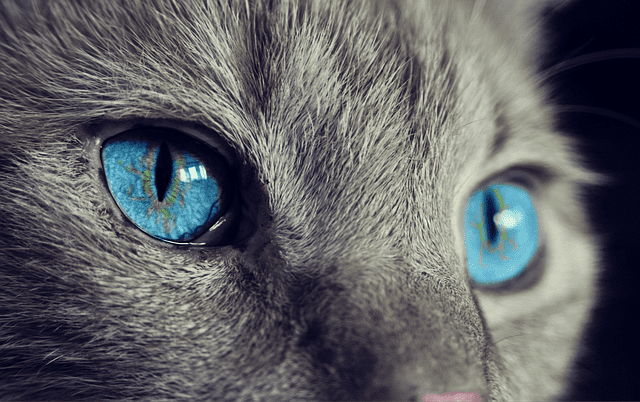
Identifying Unexplained Weight Loss
Identifying Unexplained Weight Loss
If you notice a significant and unexplained weight loss in your cat, it could be a sign of nutritional deficits. Weight loss in cats can be caused by various factors, including changes in diet and medical conditions.
Here are five important things to consider when trying to identify the cause of unexplained weight loss in your cat:
- Monitor your cat’s food intake: Keep track of how much your cat is eating and if there have been any changes in their appetite.
- Check for signs of gastrointestinal issues: Vomiting, diarrhea, or constipation can contribute to weight loss in cats.
- Look for signs of dental problems: Cats with dental issues may have difficulty eating, leading to weight loss.
- Consider underlying medical conditions: Conditions such as hyperthyroidism or diabetes can result in weight loss in cats.
- Consult with your veterinarian: If your cat is losing weight without any apparent cause, it’s important to seek professional advice to identify and address the underlying issue.
Noting Increased Lethargy
Noting Increased Lethargy
Pay attention to your cat’s energy levels as an important indicator of nutritional deficiencies. If your cat is experiencing increased lethargy, it could be a sign that it’s not getting the necessary nutrients. When a cat lacks essential nutrients, it may become less energetic and more sluggish than usual.
This lack of energy is often accompanied by other signs of nutritional deficiencies, such as decreased appetite and changes in litter box habits. If you observe that your cat is sleeping more than usual, showing less interest in playtime, or seeming disinterested in its surroundings, it’s crucial to consult with a veterinarian.
They can help determine if your cat’s lack of energy is due to nutritional deficiencies and develop a plan to address these issues through dietary adjustments or supplementation.
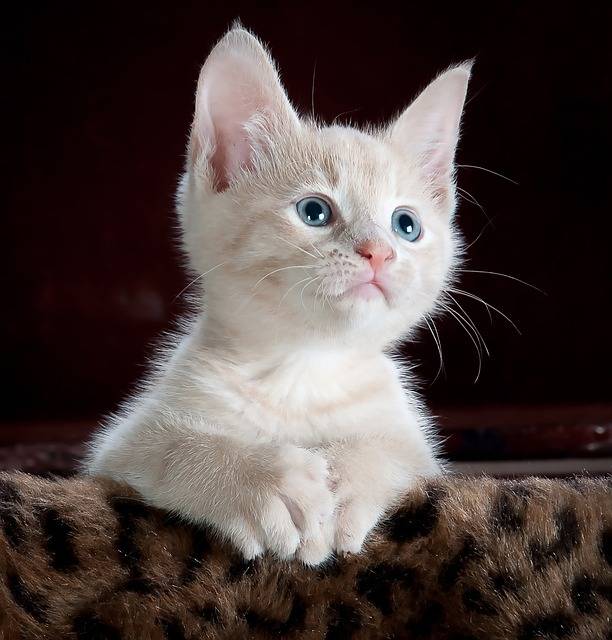
Addressing Digestive Irregularities
Addressing Digestive Irregularities
To address digestive irregularities in your cat, it’s important to pay attention to their stool consistency and frequency. This can help you identify any potential issues and take appropriate action.
Here are some effective ways you can address digestive irregularities in cats:
- Dietary changes for improved digestion: Consider switching your cat to a high-quality cat food that’s easily digestible and specifically formulated for digestive health. Look for cat foods that contain ingredients like prebiotics and probiotics, as they can promote a healthy gut.
- Natural remedies for digestive issues: Some natural remedies can help regulate your cat’s digestive system. Adding fiber-rich pumpkin puree to their diet can be beneficial, as well as incorporating digestive enzyme supplements to aid in the breakdown and absorption of nutrients.
- Hydration: Make sure your cat has access to fresh water at all times. Proper hydration is crucial for maintaining a healthy digestive system.
- Regular feeding schedule: Establishing a consistent feeding schedule can help regulate your cat’s digestion. Avoid making sudden changes to their diet or feeding routine.
- Stress management: Digestive issues in cats can sometimes be caused by stress. Creating a calm and secure environment for your cat and engaging in stress-reducing techniques, such as interactive play and environmental enrichment, can help alleviate digestive problems.
Checking for Eye and Vision Issues
Identifying potential eye and vision issues in your cat is important for their overall health. By closely observing their behavior and appearance, you can gather valuable information. The eyes serve as a crucial indicator of their well-being and can reveal underlying nutritional deficits.
Keep an eye out for any changes in eye color, such as a yellowish tint, which could be a sign of liver problems. Cloudiness or a blue-gray haze may suggest the presence of cataracts or glaucoma. It’s also essential to pay attention to your cat’s behavior. If you notice them squinting or rubbing their eyes frequently, they may be experiencing discomfort or irritation. Other signs to watch for include redness, excessive tearing, or discharge.
Regular check-ups with a veterinarian are necessary to maintain your cat’s overall health, including their eye and vision health. Additionally, providing a balanced and nutritious diet is crucial for supporting your cat’s eye health.
Assessing Dental Health and Gums
Assessing Your Cat’s Dental Health and Gum Condition
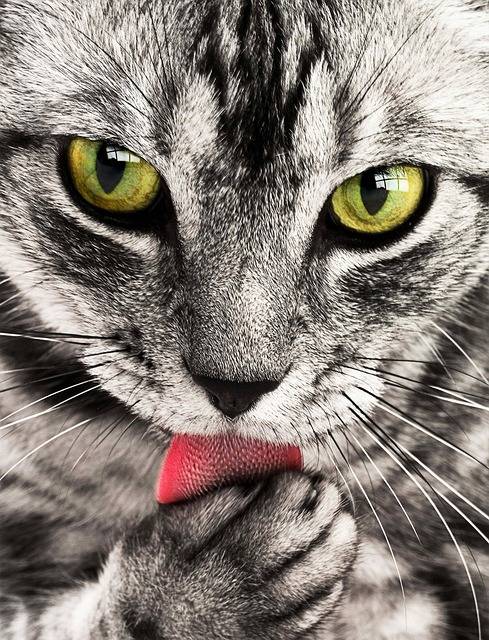
Ensuring your cat’s overall health includes regularly assessing their dental health and the condition of their gums. Taking care of their teeth is essential to their well-being and can help prevent various health problems, including gum disease.
Here are five important factors to consider when evaluating your cat’s dental health:
- Check the gums – Healthy gums should be pink and firm. If you notice any redness, swelling, or bleeding, it could be a sign of gum disease.
- Look for plaque and tartar – Excessive plaque buildup can lead to gum disease and tooth decay. Keep an eye out for yellow-brown deposits on the teeth.
- Inspect the teeth – Healthy teeth should be clean and free of fractures or chips. Broken teeth can cause pain and infections.
- Assess breath odor – Bad breath can indicate dental issues like gum disease or tooth decay.
- Monitor eating habits – If your cat has difficulty chewing or shows reluctance to eat hard food, it could be a sign of dental pain or discomfort.
Evaluating Immune System Health
Assessing the Health of Your Cat’s Immune System
To determine if your cat’s immune system is functioning well, it’s important to regularly evaluate their overall well-being and be on the lookout for any signs of weakened immune function. A strong immune system plays a crucial role in maintaining your cat’s overall health and well-being.
One effective way to support their immunity is by providing them with a balanced and nutritious diet. Keep an eye out for indicators of a weakened immune system, such as recurring infections, slow wound healing, chronic diarrhea, or frequent respiratory issues. Additionally, pay attention to their energy levels and appetite. A healthy cat should have a good appetite and be active and playful.
If you notice any changes in these areas, it could be a sign of a compromised immune system. In such cases, it’s important to consult with your veterinarian for a proper diagnosis and treatment plan.
Observing Behavioral and Mood Shifts
How can you spot changes in your cat’s behavior and mood? Paying close attention to your cat’s actions and emotions can provide valuable insight into their overall well-being. Here are five key signs to watch out for:
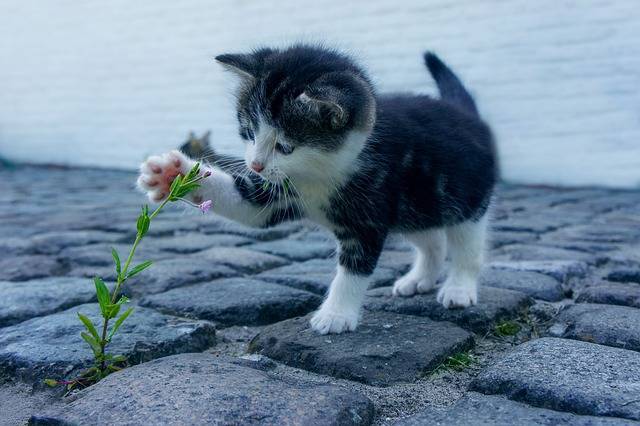
- Appetite changes: Understanding fluctuations in your cat’s appetite is important as it could indicate a nutritional deficiency or an underlying health problem.
- Sleep pattern alterations: Cats are notorious for their love of sleep, so any significant changes in their sleeping routine may indicate distress or discomfort.
- Unusual aggression or withdrawal: Sudden aggressive behavior or excessive hiding could be a sign of pain, stress, or anxiety in your cat.
- Increased vocalization: Excessive meowing or yowling may signify discomfort or a need for attention.
- Changes in litter box behavior: Keep an eye out for any changes in your cat’s litter box habits, such as increased frequency, difficulty urinating, or diarrhea, as these could be signs of a nutritional deficiency or a medical condition.
Frequently Asked Questions
What Are Some Common Signs of Nutritional Deficits in Cats That Are Not Mentioned in the Article?
If you’re curious about signs of nutritional deficits in cats that are not mentioned in the article, it’s worth paying attention to any changes in their behavior. These changes can be an indication of potential health issues caused by inadequate nutrition. It’s important to monitor your cat closely and consult with a veterinarian if you notice any concerning behavioral changes. Providing a balanced and nutritious diet is crucial for your cat’s overall well-being.
How Can I Determine if My Cat’s Nutritional Deficits Are Caused by a Specific Nutrient Deficiency?
If you suspect that your cat may have nutritional deficits due to a specific nutrient deficiency, there are a few signs you can look out for. Pay attention to their behavior, coat condition, and energy levels. If you notice any changes or abnormalities, it’s important to consult a veterinarian. They can perform a thorough examination and provide recommendations for potential dietary adjustments. Remember, your cat’s health is a top priority, so seeking professional advice is crucial in ensuring their well-being.
Are There Any Behavioral Changes That Can Indicate Nutritional Deficits in Cats?
If your cat is displaying changes in behavior such as a decrease in appetite, excessive licking, or alterations in litter box habits, these could be signs of nutritional deficiencies. It’s important to note that these symptoms were not mentioned in the article.
Can Nutritional Deficits in Cats Lead to Other Health Problems?
Nutritional deficiencies in cats can have a significant impact on their immune system and lead to long-term health issues. When cats don’t receive proper nutrition, their immunity weakens, making them more susceptible to various diseases and illnesses. Providing a balanced and nutritious diet is crucial for maintaining their overall health and well-being.
What Steps Can I Take to Prevent Nutritional Deficits in My Cat?
To prevent nutritional deficits in your cat, it’s important to prioritize regular vet check-ups. These check-ups can help catch any deficiencies early on, ensuring your cat’s health and well-being. Additionally, when choosing cat food, opt for options that contain high-quality ingredients. It’s always a good idea to consult with your vet to ensure the chosen food meets your cat’s specific nutritional needs. Taking these steps will help you provide the best care for your furry companion.
Conclusion
Recognizing the signs of nutritional deficits in cats is essential for their overall well-being. These indicators, such as poor coat condition, digestive irregularities, weight loss, and behavioral shifts, provide valuable insights into their health.
By carefully observing our feline friends and promptly addressing any concerns, we can ensure they receive the proper nutrition they need.
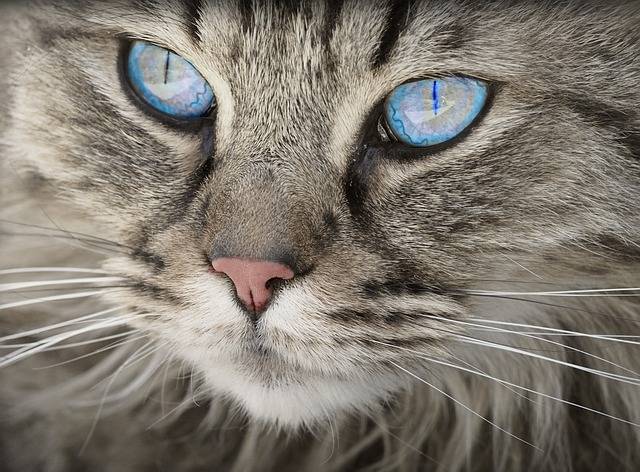
It’s important to remember that a healthy cat is full of energy and life, like a vibrant work of art.
table, th, td { border: 1px solid black; border-collapse: collapse; padding: 10px;}
cats
Little Kitten My Favorite Cat – Play Fun Pet Care Kids Game – Fun Games For Kids & Children

By: ArcadeGaming
Title: Little Kitten My Favorite Cat – Play Fun Pet Care Kids Game – Fun Games For Kids & Children
Sourced From: www.youtube.com/watch?v=Hyju6Gwo_gs
cats
Guy Thinks He’s Lost His Foster Cat | The Dodo

By: The Dodo
Title: Guy Thinks He”s Lost His Foster Cat | The Dodo
Sourced From: www.youtube.com/watch?v=Jn4YJr_pWzY
cats
How To Train Your Cat: Two Methods You Need To Know

By: Cat School Clicker Training
Title: How To Train Your Cat: Two Methods You Need To Know
Sourced From: www.youtube.com/watch?v=LJVQINS8xFk
-

 cats7 months ago
cats7 months agoHow to Get Your Cats to Stop… Everything You Hate: Every No Needs a Yes!
-

 All Animals1 year ago
All Animals1 year agoALL about Lagomorphs Explained!
-

 All Animals10 months ago
All Animals10 months agoExplore the Wilderness: ALL about Carnivores Unleashed!
-

 Animals1 year ago
Animals1 year agoThe Wonders: ALL About Artiodactyls
-

 Cat Breeds6 months ago
Cat Breeds6 months agoWhat Are Some Rare Domestic Cat Breeds?
-

 Cat Breeds6 months ago
Cat Breeds6 months agoWhat Are the Top Family-Friendly Domestic Cat Breeds?
-

 Cat Breeds6 months ago
Cat Breeds6 months agoDiscover Rare Domestic Cat Breeds With Our Guide
-

 Cat Breeds6 months ago
Cat Breeds6 months agoTop Family-Friendly Domestic Cat Breeds
